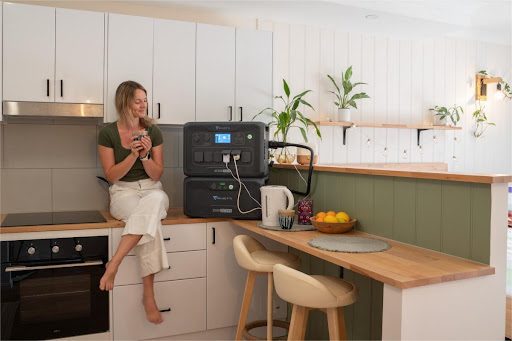 Are you tired of fluctuating energy prices and unexpected power outages? It might be time to consider a home battery system. These energy storage solutions offer a range of benefits that can enhance your energy independence and financial savings. In this article, we’ll delve into the essentials of home battery systems, explore why they’re worth your consideration, and highlight key factors to keep in mind when making your decision.
Are you tired of fluctuating energy prices and unexpected power outages? It might be time to consider a home battery system. These energy storage solutions offer a range of benefits that can enhance your energy independence and financial savings. In this article, we’ll delve into the essentials of home battery systems, explore why they’re worth your consideration, and highlight key factors to keep in mind when making your decision.
Understanding Home Battery Systems
In a nutshell, a home battery system is a clever energy storage solution housed within your abode. It can store energy from the grid or your solar setup, reserving it for later use during peak energy demand time or when the lights unexpectedly go out. The battery systems, such as BLUETTI‘s AC Series, boast advanced LiFePO4 batteries that last over 3,500 cycles before reaching 80% of their original capacity.
Advantages of Home Battery Systems
Constant Power Supply
Imagine a scenario where the lights suddenly go out due to a grid failure. In such moments, a home battery system can be your lifeline, powering essential devices like refrigerators, medical equipment, and communication devices seamlessly. Some systems, like the BLUETTI AC300 system, operate as responsive uninterruptible power supplies (UPS), instantly delivering electricity within a few milliseconds of a power outage.
Reduce Energy Bills
Through a process known as peak load shifting, home battery systems charge during off-peak hours when energy rates are lower and discharge when demand—and consequently prices—peak. By tapping into stored energy during peak hours, you can significantly reduce your energy costs. Moreover, if your home is installed with solar panels, a home battery system, such as the BLUETTI AC300+B300 system, can harness free solar energy and store excess power at a maximum rate of 2,400W for later use.
Empowering a Sustainable Tomorrow
Embracing a home battery system isn’t just about financial benefits; it’s also a step towards a greener future. By pairing a home battery with solar panels, you can capture and store clean and renewable solar energy, reducing your carbon footprint and environmental impact.
Factors to Consider When Buying a Home Battery System
Household Energy Needs
Understanding your household’s energy usage patterns is the first step in choosing the right home battery system. Start by assessing your daily electricity usage. Consider the appliances and devices you use regularly, such as refrigerators, air conditioners, heaters, and electronics. If you have solar panels installed, factor in the amount of energy they generate during the day. This analysis will help you determine the battery capacity needed to effectively meet your energy needs.
Battery System Capacity
Home battery systems come with varying storage capacities, typically measured in kilowatt-hours (kWh). Choose a system that aligns with your energy needs. For example, if you’re expected to have short blackouts, power stations around 2kWh like BLUETTI AC200P and AC200MAX can keep your essentials charged. For higher energy demands or longer outages, you could add additional B230 batteries to complement the AC200MAX, or simply opt for a customizable energy storage, such as the AC300. The modular system allows for a flexible capacity ranging from 3,072Wh to 12,288Wh to get you through multi-day power cuts.
Installation and Maintenance Costs
When considering a home battery system, assess both the upfront installation costs and potential ongoing maintenance expenses. Installation costs can vary based on factors such as the installation process, the size of the battery system, and any additional equipment required. Obtain quotes from reputable installation professionals and budget for any periodic servicing or potential component replacements.
Electricity prices are on the rise. With a reliable BLUETTI home battery system, you can reduce your energy bills and take advantage of free, clean solar energy.



















